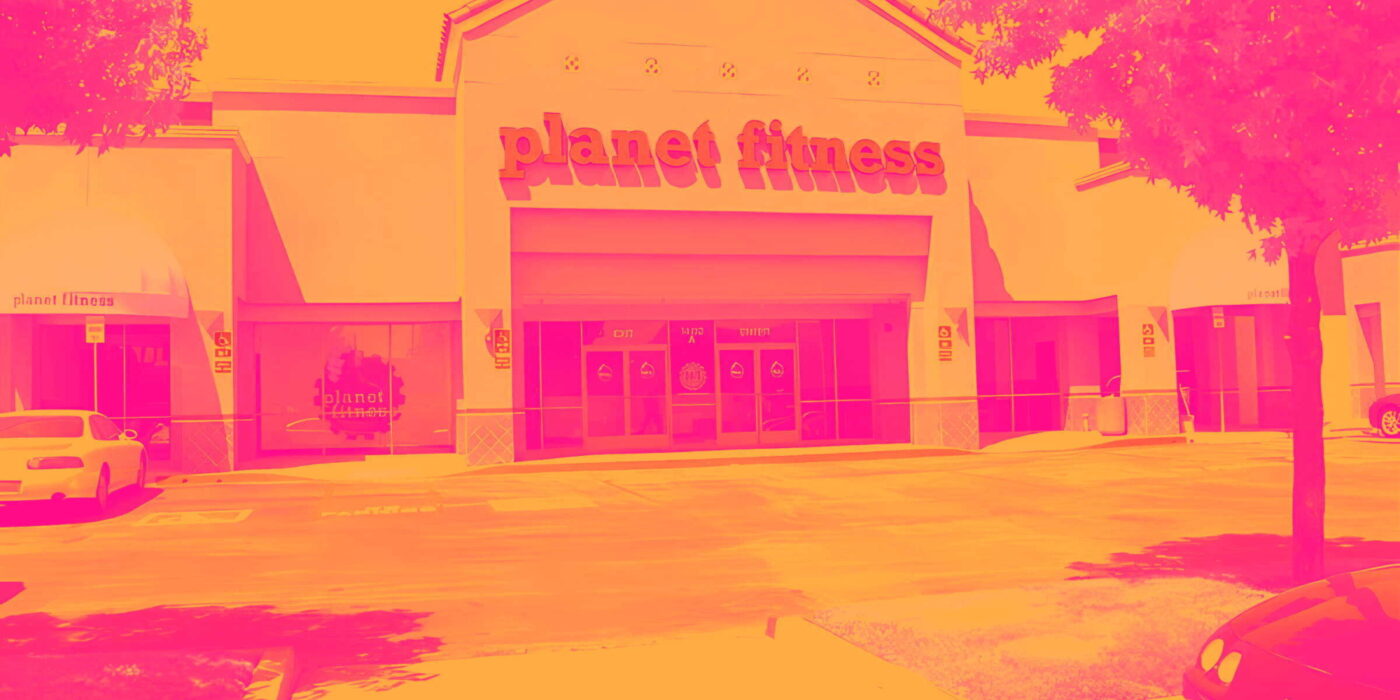
Planet Fitness faced a significant market selloff following its first quarter results, as both revenue and adjusted profit came in below Wall Street’s expectations. Management highlighted robust membership growth, including a net increase of 900,000 members and ongoing strength in its high-value Black Card tier, which reached 65% penetration. CEO Colleen Keating noted that first quarter performance benefited from successful marketing campaigns and increased member engagement, with the average club visit rate reaching a five-year high. However, management acknowledged a cautious approach due to ongoing macroeconomic volatility and industry-wide cost pressures, especially from tariffs.
Is now the time to buy PLNT? Find out in our full research report (it’s free).
Planet Fitness (PLNT) Q1 CY2025 Highlights:
- Revenue: $276.7 million vs analyst estimates of $279.9 million (11.5% year-on-year growth, 1.2% miss)
- Adjusted EPS: $0.59 vs analyst expectations of $0.62 (4.1% miss)
- Adjusted EBITDA: $117 million vs analyst estimates of $120.3 million (42.3% margin, 2.7% miss)
- Operating Margin: 28.6%, up from 26.5% in the same quarter last year
- Same-Store Sales rose 6.1% year on year, in line with the same quarter last year
- Market Capitalization: $9.05 billion
While we enjoy listening to the management's commentary, our favorite part of earnings calls are the analyst questions. Those are unscripted and can often highlight topics that management teams would rather avoid or topics where the answer is complicated. Here is what has caught our attention.
Our Top 5 Analyst Questions Planet Fitness’s Q1 Earnings Call
- Simeon Siegel (BMO Capital Markets) asked about the sustainability of Black Card penetration and the split between pricing and membership growth. CEO Colleen Keating explained that Black Card momentum was aided by successful promotions and the narrow price gap, and CFO Jay Stasz detailed how pricing would continue to drive comps, with a gradual shift expected as price anniversaries occur.
- Sharon Zackfia (William Blair) inquired about macroeconomic pressures and competitive dynamics. Keating responded that Planet Fitness’s value proposition remains resilient even in volatile conditions, with consumer demand holding up, particularly among Gen Z and millennials who prioritize experiences over goods.
- John Heinbockel (Guggenheim) questioned Black Card pricing strategy and the results of recent price tests. Keating indicated no near-term price increase is planned but noted ongoing tests at higher price points, with little observed difference in member response between $27.99 and $29.99 tests.
- Max Rakhlenko (TD Cowen) asked about the cadence of net member adds and the potential impact of click-to-cancel on churn. Stasz clarified that post-pandemic trends have disrupted historical patterns, and that churn from online cancellation is expected to be front-loaded, with possible improvements in member joins due to increased consumer confidence.
- Xian Siew (BNP Paribas) sought clarity on franchisee sentiment for new club openings and the contribution of product updates to comps. Keating emphasized that franchisee interest remains healthy and that all new clubs are adopting the updated strength-focused equipment mix, reflecting member preferences.
Catalysts in Upcoming Quarters
In the coming quarters, our team will monitor (1) the pace of new club openings and international expansion, (2) member churn trends following the full rollout of online cancellation, and (3) the effectiveness of ongoing pricing and promotional strategies, especially regarding Black Card penetration. We will also watch for further updates on tariff impacts and operational cost controls.
Planet Fitness currently trades at $107.38, up from $101.76 just before the earnings. Is there an opportunity in the stock?The answer lies in our full research report (it’s free).
Our Favorite Stocks Right Now
Donald Trump’s victory in the 2024 U.S. Presidential Election sent major indices to all-time highs, but stocks have retraced as investors debate the health of the economy and the potential impact of tariffs.
While this leaves much uncertainty around 2025, a few companies are poised for long-term gains regardless of the political or macroeconomic climate, like our Top 5 Growth Stocks for this month. This is a curated list of our High Quality stocks that have generated a market-beating return of 183% over the last five years (as of March 31st 2025).
Stocks that made our list in 2020 include now familiar names such as Nvidia (+1,545% between March 2020 and March 2025) as well as under-the-radar businesses like the once-small-cap company Comfort Systems (+782% five-year return). Find your next big winner with StockStory today.
